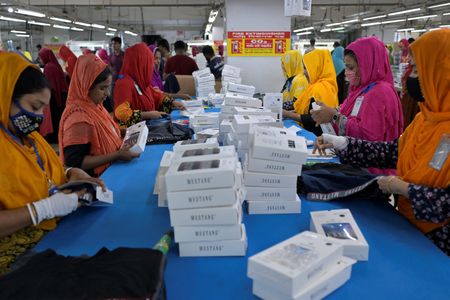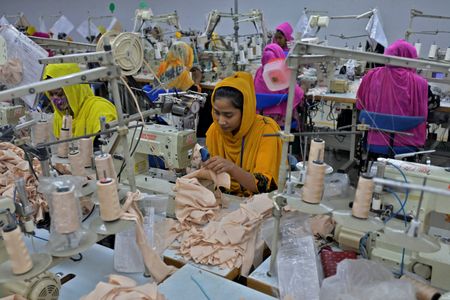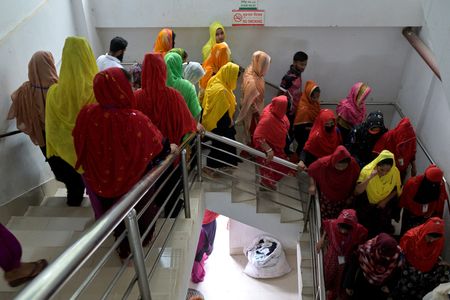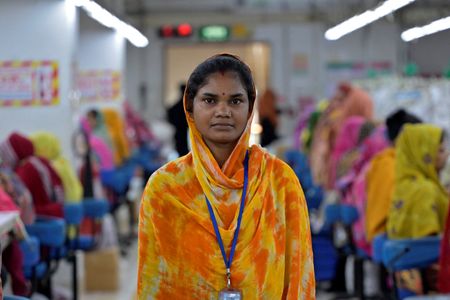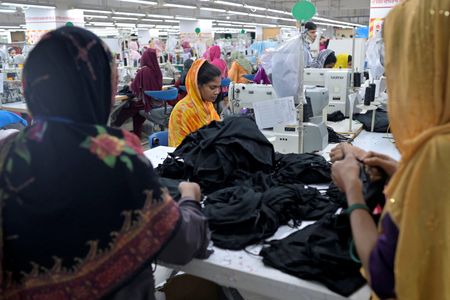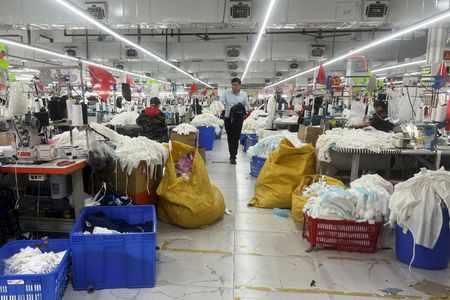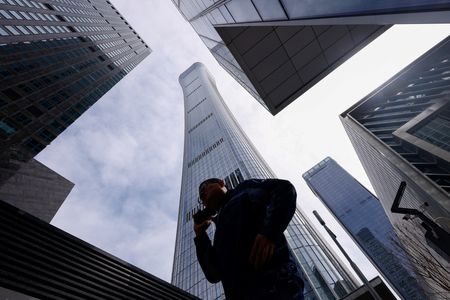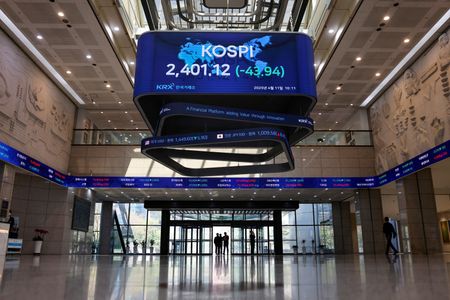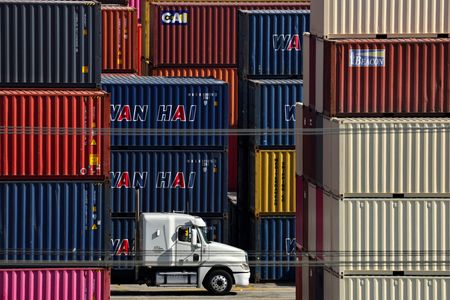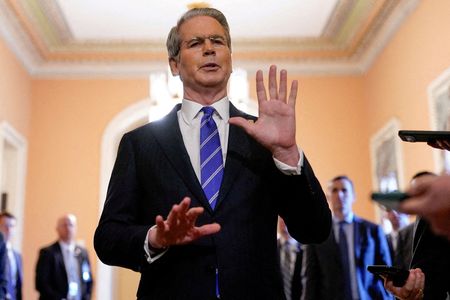By Ruma Paul and Fatima johora
ASHULIA, Bangladesh (Reuters) -The fear of job losses is rippling through Bangladesh’s garment hubs as U.S. President Donald Trump’s 35% tariff on the South Asian nation threatens orders from its main export market and crimps the country’s biggest industry.
The readymade garments sector accounts for more than 80% of Bangladesh’s total export earnings, employing 4 million people and contributing roughly 10% to its annual GDP.
Raimoni Bala, who operates an industrial sewing machine at a garments factory in Ashulia, a satellite town on the outskirts of Dhaka, says she fears losing her job every day.
“For the past few months, everyone is talking about cuts,” said Bala, 32. “Whenever anyone visits the factory, my chest aches. I feel like they’ve come to tell me I’ve lost my job.”
In a letter to Bangladesh Chief Adviser Muhammad Yunus, Trump said a 35% levy will be imposed on Bangladeshi imports from August 1 – slightly lower than the 37% tariff he announced in April but more than double the previous average of around 15%.
Trump has said he will impose a 20% tariff on major apparel exporter Vietnam while levies on India and Sri Lanka – also big American suppliers – are yet to be announced. Lower tariffs for these competitor nations will make apparel from Bangladesh costlier in comparison.
Bangladesh and the U.S. Trade Representative will kick off second round of negotiations on Wednesday to conclude a trade agreement, Dhaka said.
While there was still time for Dhaka to reach a trade deal, the fear of disruption due to higher U.S. tariffs is pervasive on factory floors.
Reuters spoke to more than a dozen workers in the garments industry like Bala. All shared the same fear – that under the weight of higher tariffs, cancelled orders and factory closures, their livelihoods were under threat.
Suppliers in Bangladesh’s garments industry, which counts Gap Inc and Vans parent VF Corp as clients, told Reuters that many brands have adopted a “wait-and-see” approach and are placing few new orders.
“The burden of this tariff hike will fall heavily on garment manufacturers and the millions of workers they employ, a majority of whom are women, raising the risks of slower growth, job losses and a rise in poverty,” said Selim Raihan, an economics professor at the University of Dhaka.
Bala’s story is similar to many of the workers in the teeming capital. She left her village in northern Bangladesh with the bare minimum, determined to give her sons – now 15 and 13 – a better future.
Her husband’s poor health only allows him to work sporadically as a day labourer, she said, making her job at the garments factory crucial to the family’s survival.
During the pandemic, Bala said her factory shut down. She said she continued to receive reduced wages under a government stimulus programme, but her family was forced to almost go hungry.
Every rumour of new tariffs or reduced orders rekindles the fear of losing her job, she said.
She said she clings to the hope that her job, though exhausting and low-paid, will keep her sons in school and provide food on the table.
“I have confidence in my work. I work with respect,” Bala said. “As long as I have this job, my sons can dream. Without it, I don’t know what will happen to us.”
(Reporting by Ruma Paul and Fatima Tuj Johora; Editing by Sudipto Ganguly and Raju Gopalakrishnan)

